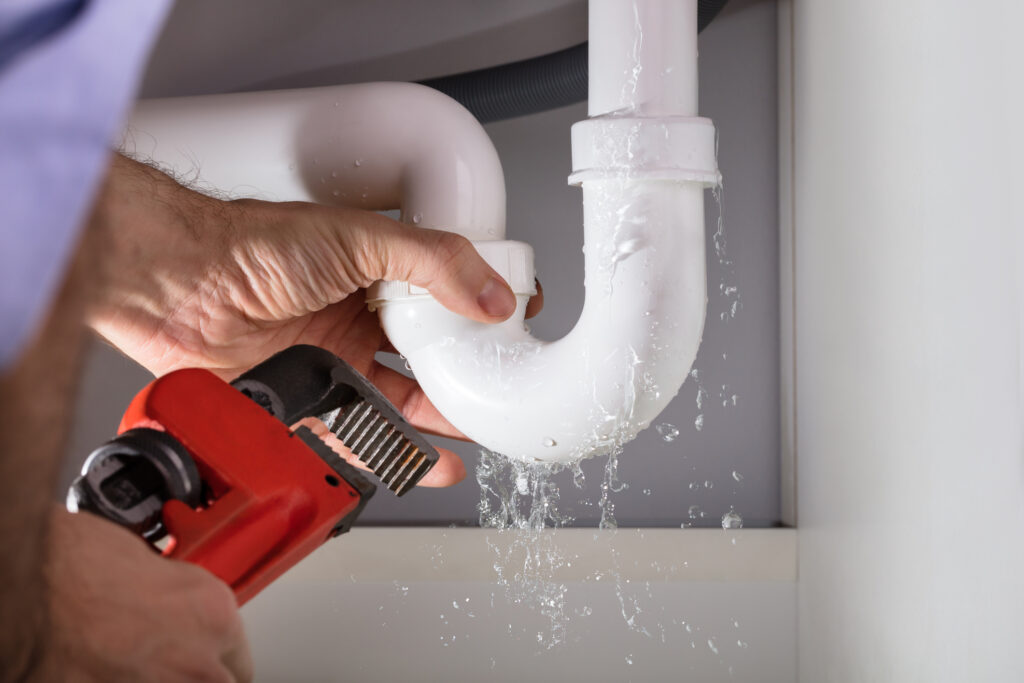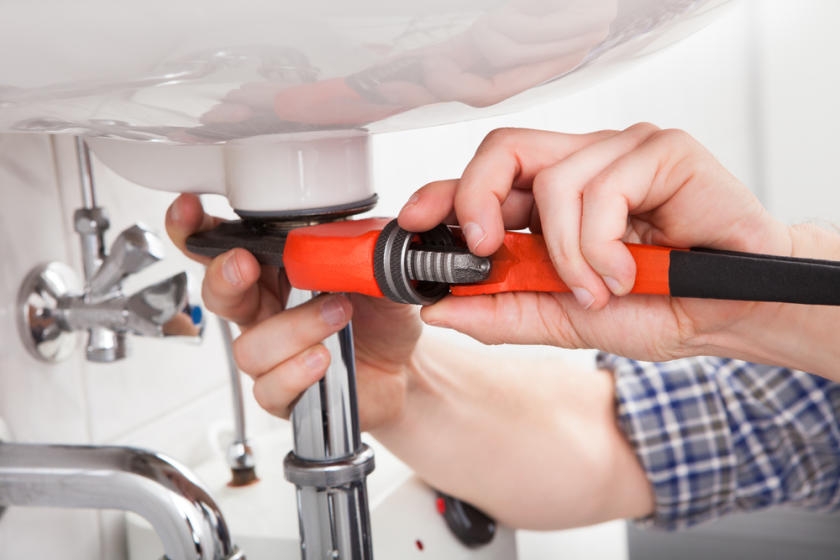The writer is making a number of great pointers related to What to Do During a Plumbing Emergency overall in this content down the page.

Pipes emergency situations can strike at any time, causing stress and anxiety and prospective damage to your home. Whether it's a ruptured pipe, a clogged drainpipe, or a leaking tap, understanding how to take care of the circumstance until a professional plumbing technician arrives can conserve you from further difficulties. This post provides crucial emergency pipes tips to assist you minimize damage and gain back control during a plumbing situation.
Turn Off the Water System
The primary step in any type of pipes emergency is to shut down the supply of water. For local issues, such as a dripping faucet or commode, turn off the shutoff near the fixture. In the case of a significant leak or ruptured pipe, find your home's major water shut-off valve and transform it off instantly. Recognizing the location of these valves ahead of time can save useful time during an emergency.
Shut down Your Water Heater
In specific emergency situations, such as a burst pipeline, it's important to shut off your hot water heater. This prevents overheating or damages to the device when water stops streaming. Switch off the power supply to the water heater (electric or gas) and let it cool off to prevent possible threats.
Temporarily Stop a Burst Pipe
A burst pipe can result in considerable water damage in minutes. To alleviate the problem:
Call a professional plumber immediately to address the problem completely.
Have an Emergency Situation Pipes Package
Prepare a standard pipes emergency situation package to take care of small issues efficiently. Your set needs to consist of:
Having these tools on hand can make a substantial distinction in your capability to take care of emergency situations.
Unclog Drains Securely.
A clogged up drainpipe can be an aggravating and untidy concern. Below's exactly how to tackle it:.
If these techniques don't work, avoid making use of too much pressure, as it might get worse the obstruction.
Manage Overflowing Toilets.
An overflowing toilet can create prompt turmoil. Right here's what you ought to do:.
Address Little Leakages with Short-term Solutions.
Small leakages can quickly come to be significant troubles if left unattended. Make use of these temporary repairs until expert aid arrives:.
While these repairs aren't irreversible, they can help lessen water loss and damages.
Handle Frozen Pipes Thoroughly.
In cooler environments, icy pipes are a typical emergency situation. If you suspect a frozen pipeline:.
Know When to Call a Specialist.
While quick fixes can help temporarily, specific pipes concerns call for prompt specialist focus. Call a plumber if:.
Quickly calling an expert makes sure the problem is resolved correctly and prevents more difficulties.
Protect against More Damages.
Taking fast action to reduce damage can save you time and money in the future. Below's just how:.
Verdict.
Plumbing emergency situations can be overwhelming, but with the appropriate expertise and tools, you can manage the scenario effectively till aid shows up. By turning off the water, resolving little leaks, and making use of short-term fixes, you can decrease damage and keep your home safe. Bear in mind, these suggestions are short-lived options; always consult an accredited plumbing to manage the source of the trouble. Preparation and quick reasoning are your best allies in any type of pipes emergency.
Expert Tips for Emergency Plumbing Repairs
Plumbing emergencies can be incredibly stressful and inconvenient. Whether it’s a burst pipe, a clogged drain, or a leaky faucet, these common plumbing emergencies need immediate attention to prevent further damage to your home. But before you panic, it’s important to understand the basics of plumbing repairs and the steps you can take to address these emergencies. In this article, we will share some expert tips to help you navigate through these situations and minimize potential water damage.
Identifying Common Plumbing Emergencies
Leaky pipes and faucets Clogged drains and toilets Burst pipes Low water pressure Water heater problems Essential Tools for Plumbing Repairs
Plunger: Useful for unclogging toilets and drains Adjustable wrench: Needed for tightening or loosening nuts and bolts Pipe wrench: Ideal for gripping and turning pipes Tape measure: Necessary for accurate pipe measurements Plumber’s tape: Helps create watertight seals Understanding Emergency Plumbing Services
Emergency plumbing services are designed to provide immediate assistance for unexpected plumbing issues that can cause significant damage to your home, business, or health. These services are typically available 24/7 and are staffed by experienced plumbers who can quickly diagnose and repair a wide range of plumbing problems.
When a plumbing emergency strikes, time is of the essence. Whether it’s a burst pipe flooding your basement or a gas leak posing a serious risk, emergency plumbing services ensure that help is just a phone call away. These professionals are equipped with the tools and expertise to handle any situation, minimizing damage and restoring your plumbing system to proper working order.
What Constitutes a Plumbing Emergency?
Burst pipes or water supply lines: These can cause extensive water damage and need immediate repair to prevent flooding. Gas leaks or suspected gas leaks: Gas leaks are extremely dangerous and require prompt attention to avoid potential explosions or health hazards. Sewer backups or overflows: These can lead to unsanitary conditions and significant property damage. Clogged drains or toilets causing water to overflow: Overflowing water can damage floors, walls, and other structures. Leaks or water damage causing structural damage: Persistent leaks can weaken the structural integrity of your home or business. No hot water or heating: A lack of hot water can be more than an inconvenience, especially in colder months. Common Causes of Plumbing Emergencies
Aging or corroded pipes: Over time, pipes can deteriorate, leading to leaks or bursts. Improperly installed or maintained plumbing fixtures: Faulty installations or lack of maintenance can result in unexpected failures. Tree roots or other debris infiltrating your sewer line: Roots can grow into pipes, causing blockages and backups. Frozen pipes or water supply lines: In colder climates, pipes can freeze and burst, leading to significant water damage. High water pressure or sudden changes in water pressure: Excessive pressure can strain pipes and fixtures, causing them to fail. Natural disasters such as floods or earthquakes: These events can disrupt your plumbing system and cause severe damage. Steps to Minimize Water Damage
Locate the water shut-off valve: Knowing where the valve is can help you quickly cut off the water supply to the affected area. Turn off the water heater: If there’s a risk of water coming into contact with the heating element, make sure to turn off the water heater to avoid potential accidents. Open faucets and drain pipes: By opening faucets and drain pipes, you can relieve pressure and empty any standing water. Collect and contain water: Use towels, buckets, or bins to collect water and prevent it from spreading to other areas of your home. https://leecountyplumbingandwellservice.com/expert-tips-for-emergency-plumbing-repairs/

We had been made aware of that article about Plumbing Emergencies: Tips on What To Do Before through someone on our other web page. You should pause to distribute this blog entry if you appreciated it. We appreciate reading our article about .
Visit My Site